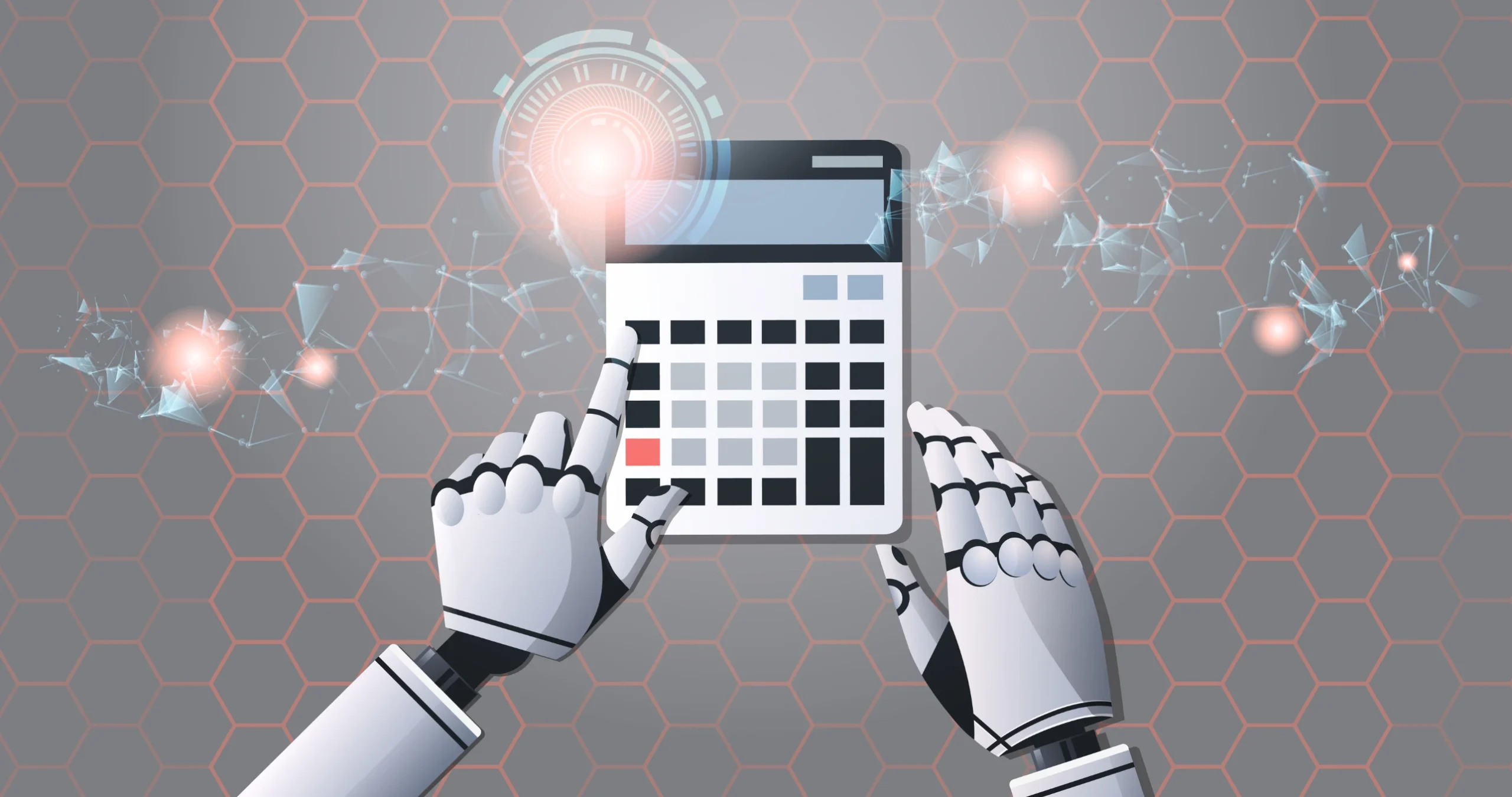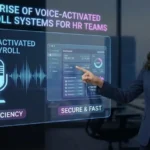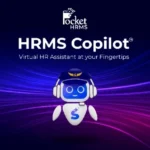
AI in Payroll: 5 Best Practices with Features & Challenges
Table of Contents

Reading Time: 5 minutes
Employee payroll management is one of the essential tasks that every organization has to perform. It is a complex process where employers face numerous challenges in tracking employee payroll management and managing data accuracy.
With the artificial intelligence and machine learning process, the traditional payroll process can be accelerated. With AI in payroll, employers get rid of handling payroll data, minimizing the possibility of error due to human involvement.
AI technology enhances efficiency, accuracy, data management, data collection, automatic data transfers, global payroll process, payroll tasks and other HR-related decision-making processes.
HR Issues During Manual Payroll Management
Payroll management, maintaining the entire administrative task, and critical data handling become challenging for employers. However, employers can use the payroll system to manage employees as a whole.
Here are some common issues employers may face during payroll.
1. Data Inaccuracies
Incorrect or incomplete employee data can mislead the payroll processes. Missing or inaccurate information like wrong work hours, inaccurate deductions or benefits, and mistaken tax withholding can result in incorrect paychecks and compliance issues.
2. Manual Processes, Incomplete Data
Often manual entry of employee data is time-consuming and brings risk to data mismanagement like incorrect keystrokes, misplaced decimal points, transposed numbers, data misplacement, etc.
These errors can lead to overpayment, underpayment, and reconciliation problems. Inaccurate or incomplete data management can reflect on the future of payroll data management. It can lead to hassled circumstances and affect employer-employee relationships.
3. Handling Attendance Records and Performance
Handling attendance records and performance can be challenging for HR payroll management. Employers require clear policies, accurate data collection, secure systems, and transparent communication for processing the entire employee payroll.
Attendance and performance data mismanagement affect payroll management. It leads to employee dissatisfaction and lower productivity.
4. Managing Deductions, Benefits and Overtime Calculation
The employer faces various challenges in payment calculations while computing the values for the following aspects of payroll:
- Earnings
- Deductions
- Contributions to Health Insurance
- Retirement Plans
- Loan repayments
- Medical Benefits
It reflects on the discrepancies and employee dissatisfaction. The payroll department takes days or weeks to calculate accurate data-intensive payroll functions.
5. Technology Challenges
Manual data handling is a time-consuming task. And it makes the company outdated as per the industry standard.
Outdated payroll software or insufficient technology infrastructure can hinder efficient payroll processing. Modernizing technology and ensuring data security are essential considerations to elevate the auto payroll process.
Mitigating HR issues employers can invest in employee self-service systems and automated payroll software to streamline data management. Implementing artificial intelligence schedule automatic data transfers and maintaining administrative functions accurately.
Let’s see how AI and other robotic process automation make more accurate data processing, assist in payroll support and other administrative functions, etc.
Also Read:
Features of AI in Payroll Management
AI streamlines the entire payroll management process for a company. In recent years, many companies have implemented AI, ML, and NLP for the betterment of their HR practices. Here is a list of various ways where AI takes part effectively.
➔ Smart Roster Management
A Roster management system is an effective way for employee data management. It is a system where employees have to fulfil their task roster every day and the employers manage and analyse the system daily.
An accurate roster can lead to employee-perfect data management. With the integration of AI, employers can streamline the payroll & roster management process. Managers can analyse the previous pattern and automate the employees’ performance evaluations through the machine learning technique.
It results in better company productivity and minimises their stress level. Also, AI can automate the announcement of essential public events and any broadcast over the internet. Companies have not taken the burden of any of them due to the presence of AI.
➔ Enhanced Data Management
Data management and maintenance is a challenging task for employers. Often they make potential errors that lead to payroll mistakes. Employers can enjoy auto updation and maintenance of employee payroll data through the employee self-service system and effective AI techniques.
Additionally, employers don’t think more about employee incentives, annual bonuses, or increments. AI can be alone responsible for doing such kinds of tasks. Such a solution would ease the human resources’ daily burden.
➔ Automated Real-time Compliance
With the help of AI, employers can analyse the legislative changes. They understand how the changes would be effective on the organizational payroll. HR and payroll are highly related to each other. AI helps the organization collect voluminous data and auto-analyse them for the finest output for future delivery.
With the outstanding machine learning technique organizations can get to know employee needs. It leads to fostering trust & reliability and maintaining relationships between employees.
5 Ways AI Can Enhance HR Practices
1. AI in HRM: Automate Manual Tasks
AI-powered systems can automatically input payroll data. The AI in payroll processing calculates employee payroll function and rectifies data misplacement or data irregularities.
With the recent machine learning technique employers can extract and input data from various sources, such as timesheets, attendance records, and employee information forms. This reduces manual data entry errors and ensures accurate and consistent data.
2. AI in HR: Ease Administrative Process
AI in HR and payroll software can seamlessly integrate with HR managers and accounting systems. It streamlines the entire administrative process, reduces data entry duplication and ensures consistent and accurate information across departments.
Additionally, with AI-driven analytics employers can analyze historical payroll and workforce data automatically. Automated solutions minimise the manual effort by implementing AI features so that t employers can plan better on HR practices and allocate resources effectively. It reduces overstaffing, overtime costs, and understaffing issues.
3. AI in Security: Quick Fraud Detection
AI can identify patterns of fraudulent activities, unauthorized changes, and security breaches in payroll data. It enhances data security by continuously monitoring and detecting unusual activities and preventing potential payroll fraud. Employers don’t have to take an extra step to enhance employee data security at every level.
Through the machine learning process, AI can study historical data easily and adapt them to evolving security theft. By automating threat detection, AI enhances response times, reduces human errors, and strengthens overall data protection, ensuring a proactive approach to cybersecurity and safeguarding sensitive information from potential risks.
4. AI in Recruitment: Streamlined Hiring Process
AI in recruitment helps in resume screening, candidate matching, and initial communication. Machine learning algorithms analyze applicant data to identify the best-fit candidates based on job requirements and historical hiring data, significantly reducing the time spent on manual screening.
Predictive analytics and data-driven insights help recruiters make informed decisions, while AI-driven video interviews assess candidates’ skills and cultural fit. Overall, AI expedites the recruitment process, enhances efficiency, and improves the quality of hires.
5. AI in Employee Training: Continuous Learning and Improvement
AI systems can learn from historical payroll data to improve accuracy and efficiency over time. They can automate employee training programs based on employee specifications and interests. Employers don’t have to face challenges in segregating the training specification concerning employee expertise.
At the End
The integration of AI in payroll management holds great promise for enhancing efficiency, accuracy, and strategic decision-making within organizations. By automating routine tasks, analyzing complex data patterns, and offering predictive insights, AI systems can optimize the entire payroll process. This not only reduces the risk of errors but also allows HR teams to focus on more value-added tasks.
However, it’s essential to approach the implementation of AI in payroll with careful planning and consideration. Addressing data privacy and security concerns, ensuring transparent communication with employees, and providing adequate training for staff are critical aspects.
As AI technology continues to advance, businesses that leverage it effectively in payroll management stand to gain a competitive edge in terms of operational excellence, employee satisfaction, and resource allocation. The key lies in finding the right balance between automation and human oversight to create a seamless and efficient payroll ecosystem.








